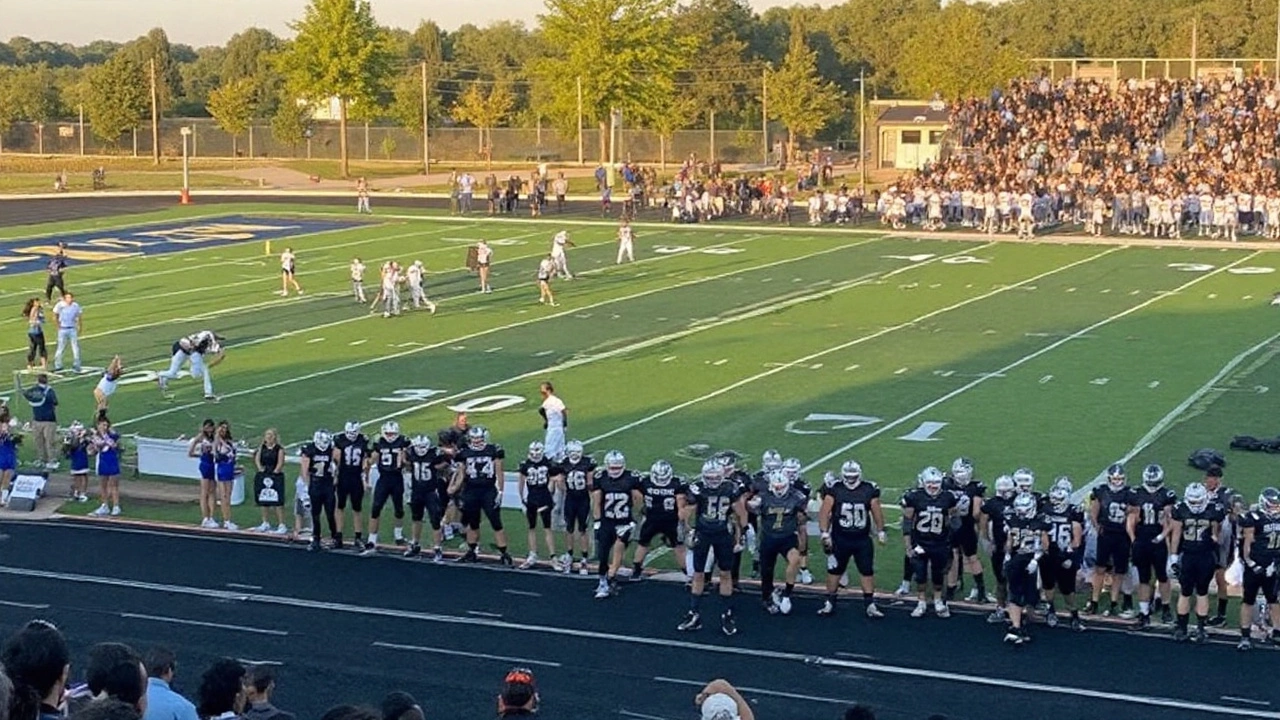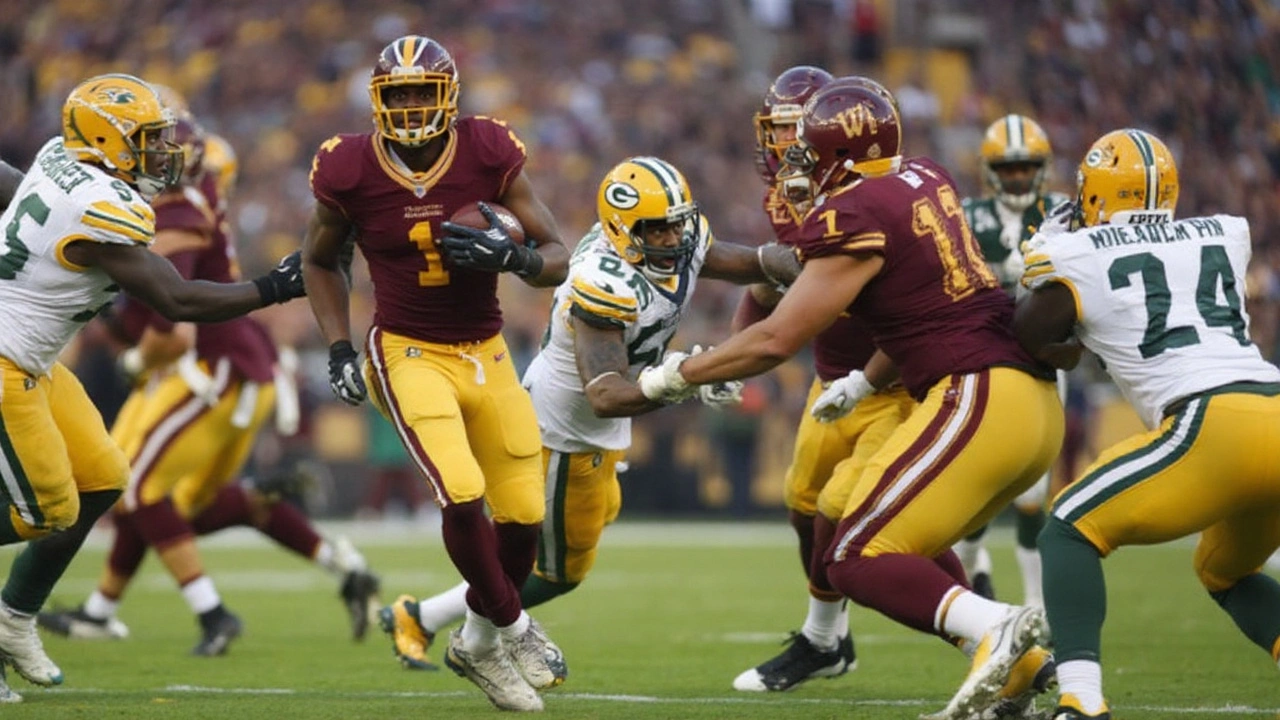Week 3 swings on one knee: Raiders-Commanders comes down to availability and timing
The setup is simple: the Las Vegas Raiders (1-0) bring early momentum to Maryland, while the Washington Commanders (1-1) come home trying to reset. The wrinkle is anything but simple. Rookie quarterback Jaden Daniels is managing a sprained knee, and his availability for Sunday’s 1:00 PM ET kickoff at Northwest Stadium could decide how this one unfolds.
That single variable touches everything. If Daniels suits up, even at less than 100%, Washington’s offense keeps its shape—designed rollouts, quick game, quarterback movement that stresses linebackers. If he sits, the playbook shrinks, the timing changes, and the Commanders lean on a steadier, more conservative script. Dan Quinn’s staff has to prep two plans in one week. That’s not ideal in the NFL, where reps are currency.
The Raiders don’t have to overthink that. At 1-0 and tied atop the AFC West, the job is straightforward: handle the early East Coast start, win first down, keep the crowd quiet. West Coast teams have fought body-clock issues in these 1:00 PM windows for years. The fix is boring but real—start fast, don’t punt from bad field position early, and lean on defense until the offense finds its rhythm.
Washington’s side is about managing risk. A mobile rookie coming off a knee sprain changes the calculus. You call fewer designed runs, you speed up the ball-out time, and you protect him with heavier formations. You also invite the Raiders to play tighter coverage, daring you to win outside the numbers. If the Commanders can’t threaten downfield, Las Vegas can crowd the short zones and make every drive feel like a 12-play slog.
The difference between 2-1 and 1-2 in late September isn’t a season-maker, but it shapes the next month. The Raiders can exit with a road win that says their Week 1 wasn’t a blip. The Commanders can steady the NFC East race by taking care of business at home, even if they’re not at full strength under center.

Matchups that matter, how Washington adapts, and the pick
Here’s where this game likely turns:
- Protection on obvious passing downs: If Washington faces too many third-and-7s, it opens the door for simulated pressure and blitz disguises. That’s a problem for any quarterback, but especially so if the game plan is already limited by injury.
- Early-down run efficiency: For both teams, four yards on first down is gold. It keeps play-action live, keeps the pass rush honest, and shortens third down. If Washington is protecting a banged-up QB, this is non-negotiable.
- Field position and special teams: Early East Coast games can start sluggish for West teams. A couple of short fields can tilt the whole afternoon. Hidden yards decide close ones.
- Scripted series: The first 15 plays tell the truth. If Washington’s openers look heavy on quick-game and perimeter runs, you’ll know they’re protecting Daniels. If they call movement throws and RPOs, his knee is good enough to threaten the edges.
Dan Quinn’s influence shows most on third down. Expect Washington to lean on defensive pressure looks to force a mistake or two and buy the offense time. The Commanders don’t need fireworks; they need a game that stays in the low 20s, where a red-zone stop or takeaway swings it. If the Raiders avoid the turnover that sets up a short field, they can play this on their terms.
Coaching adjustments also matter if Daniels can’t go or is limited. Washington would likely promote a ball-control approach—more under-center looks, two-tight-end sets, and a faster tempo in the huddle to simplify protections. That style shortens the game, but it also caps explosive plays. The Raiders’ defense will take that trade every time.
On the Las Vegas side, the blueprint is to keep it clean for the quarterback, get the ball out on time, and challenge Washington’s corners with intermediate throws. You don’t need hero shots if you’re efficient on second down and dodge negative plays. If the Raiders win the hidden yardage battle and stay out of third-and-long, the East Coast start becomes a footnote, not a factor.
What the betting market would care about—if you’re into that stuff—is how Daniels’ status moves the number. Quarterbacks move lines. Rookie quarterbacks with dynamic legs move them even more. If he’s a full go, you can justify calling this a coin flip with a slight edge to the home team. If he’s out or clearly limited, the scales tip toward Las Vegas by more than a field goal.
What to watch early:
- Washington’s first drive: Do you see bootlegs and zone-read tags? Green light for Daniels. All quick outs and inside zone? He’s limited.
- Raiders’ first third down: Do they keep it short and manageable? If yes, they’re in rhythm despite the early start.
- Explosive plays: First team to hit two gains of 20+ yards usually controls the pace. If neither does, the edge goes to the defense that tackles better.
Big-picture stakes are simple. The Raiders can pocket a road win and keep pace in a crowded AFC West. The Commanders need proof-of-concept under a new-season identity, and doing it while managing their rookie QB’s health would be a useful data point for the next stretch of the schedule.
Prediction time, with two scenarios to respect the injury question:
- If Jaden Daniels plays and looks close to himself: Washington 20, Las Vegas 19. Home crowd, enough QB movement to keep the Raiders honest, and a late defensive stand.
- If Daniels is out or clearly limited: Las Vegas 23, Washington 16. Cleaner offense for the Raiders, one short field off a takeaway, and a fourth quarter that never quite threatens.
The difference is that knee. One player shouldn’t swing a whole Sunday, but here, he does. Keep an eye on the inactives 90 minutes before kickoff. That will tell you which version of Raiders vs Commanders you’re getting.
